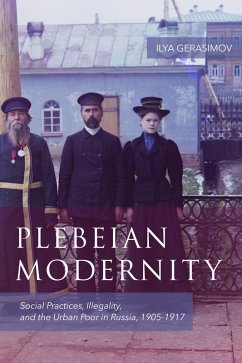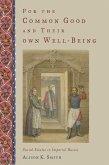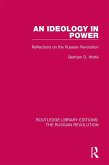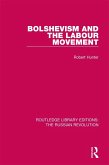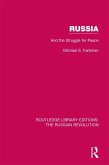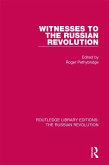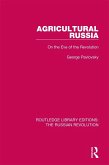Deciphers typical social practices as a hidden language of communication in urban plebeian society
Covering the interrevolutionary decade of 1906-16 in imperial Russia, this book tells the story of the "silent majority" of urban inhabitants in four major cities: Vilna (today Vilnius, Lithuania), Odessa (in today's Ukraine), Kazan, and Nizhny Novgorod. Representatives of underprivileged social groups made up some ninety percent of city populations during this period, yet produced hardly one percent of the surviving written sources. These people, many ofthem migrants from the countryside, usually did not read newspapers, rarely authored written documents, and had little exposure to public discourse. They often did not even speak a common language.
Our understanding of this population has until recently been based largely on interpretations by educated observers (journalists, legal experts, scholars), whose testimonies reflected the cultural stereotypes of the time. This book bypasses such mediation, arguing that we can come to know the authentic voices of urban commoners by reading their social practices as a nonverbal language. Toward that end, author Ilya Gerasimov closely examines newspaper criminal chronicles, policereports, and anonymous extortion letters, reconstructing typical social practices among this segment of Russian society. The resulting picture represents the distinctive phenomenon of a "plebeian modernity," one that helped shapethe outlook of early Soviet society.
Ilya Gerasimov is a founding editor of Ab Imperio. He holds a PhD in Russian history from Rutgers University.
Covering the interrevolutionary decade of 1906-16 in imperial Russia, this book tells the story of the "silent majority" of urban inhabitants in four major cities: Vilna (today Vilnius, Lithuania), Odessa (in today's Ukraine), Kazan, and Nizhny Novgorod. Representatives of underprivileged social groups made up some ninety percent of city populations during this period, yet produced hardly one percent of the surviving written sources. These people, many ofthem migrants from the countryside, usually did not read newspapers, rarely authored written documents, and had little exposure to public discourse. They often did not even speak a common language.
Our understanding of this population has until recently been based largely on interpretations by educated observers (journalists, legal experts, scholars), whose testimonies reflected the cultural stereotypes of the time. This book bypasses such mediation, arguing that we can come to know the authentic voices of urban commoners by reading their social practices as a nonverbal language. Toward that end, author Ilya Gerasimov closely examines newspaper criminal chronicles, policereports, and anonymous extortion letters, reconstructing typical social practices among this segment of Russian society. The resulting picture represents the distinctive phenomenon of a "plebeian modernity," one that helped shapethe outlook of early Soviet society.
Ilya Gerasimov is a founding editor of Ab Imperio. He holds a PhD in Russian history from Rutgers University.
Dieser Download kann aus rechtlichen Gründen nur mit Rechnungsadresse in A, D ausgeliefert werden.

